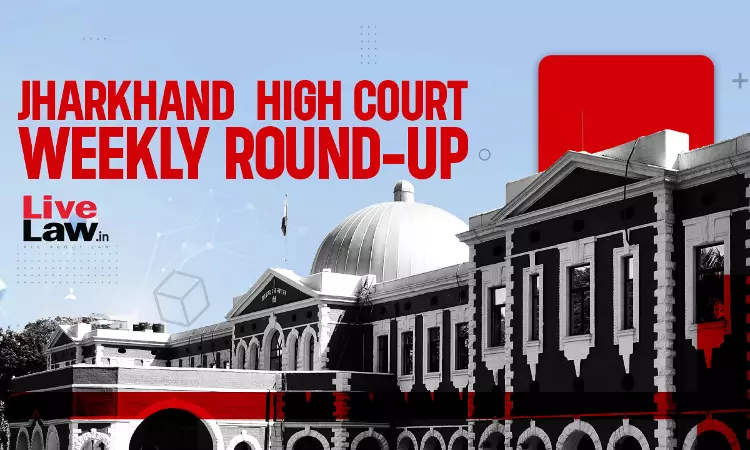Next Story
29 July 2024 5:00 PM IST
Nominal Index [Citations: 2023 LiveLaw (Jha) 117-124]TATA Capital Housing Finance Limited V. The State of Jharkhand 2024 LiveLaw (Jha) 117Arun Kumar Thakur V. The State of Jharkhand & Anr. 2024 LiveLaw (Jha) 118Rengha Oraon @ Regha Oraon V. State of Jharkhand 2024 LiveLaw (Jha) 119Chhotu Kalindi V. The State of Jharkhand 2024 LiveLaw (Jha) 120Ajit Barla V. State of Jharkhand 2024...

